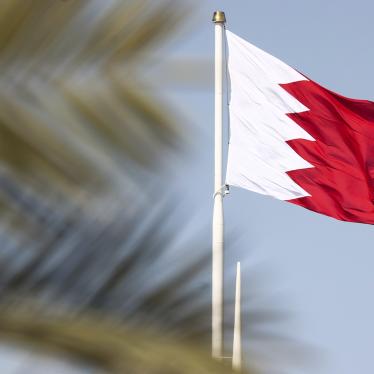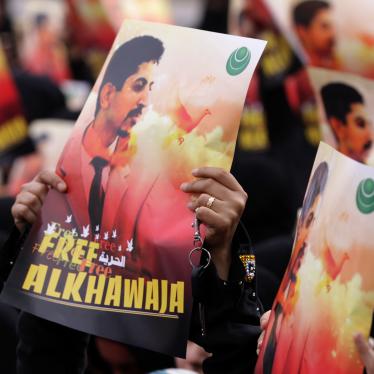Maryam al-Khawaja has spent nearly 13 years relentlessly campaigning for the release of her father, Abdulhadi al-Khawaja, a Danish-Bahraini human rights defender wrongfully serving a life sentence in Bahrain for his peaceful human rights work. In a heartbreaking message on February 19, Maryam announced she’s now also fighting cancer.
Those who know Maryam know that no one fights as fiercely as she does. In that way, she is her father’s daughter. Over the years, she has never given up on her quest for justice to see her father released from prison, where he still fights for his and others’ rights. Last August, he was among the many Bahraini political prisoners who started a hunger strike to protest their inhumane and degrading treatment. Fearing for her father’s life, Maryam tried to board a plane to Bahrain, knowing she risked arrest upon arrival. She and a delegation of leading human rights figures were prevented from boarding.
Unfortunately, neither the Danish government nor the European Union have shown similar determination in fighting for human rights in Bahrain.
Deeming Bahrain to be a “strategic partner” in the region, EU member states have been reluctant to indicate to the Danish government their readiness to support collective action against Bahrain and to make al-Khawaja’s case an “EU case.” Last year, following the prisoners’ hunger strike, EU member states finally agreed to mention Bahrain in a statement at the United Nations, but some EU governments were so reluctant that the final, negotiated language is borderline flattering to Bahrain’s autocratic rulers and includes no reference to political prisoners or their plight.
The Danish government has also been too timid in its actions, both to rally support within the EU and in confronting Bahraini authorities. Danish Foreign Minister Lars Lokke said on February 27 that he spoke about Khawaja’s case with Bahrain’s foreign minister, but was “not optimistic” about the outcome. He made no reference to what consequences Bahrain’s reluctance to release Khawaja and others will have on its relations with Denmark and the EU. And that’s precisely the problem.
Thirteen years of “private diplomacy” and “human rights dialogues” have done nothing to reunite Maryam and her father. The EU needs to recognize it has failed them both and must urgently change course.










